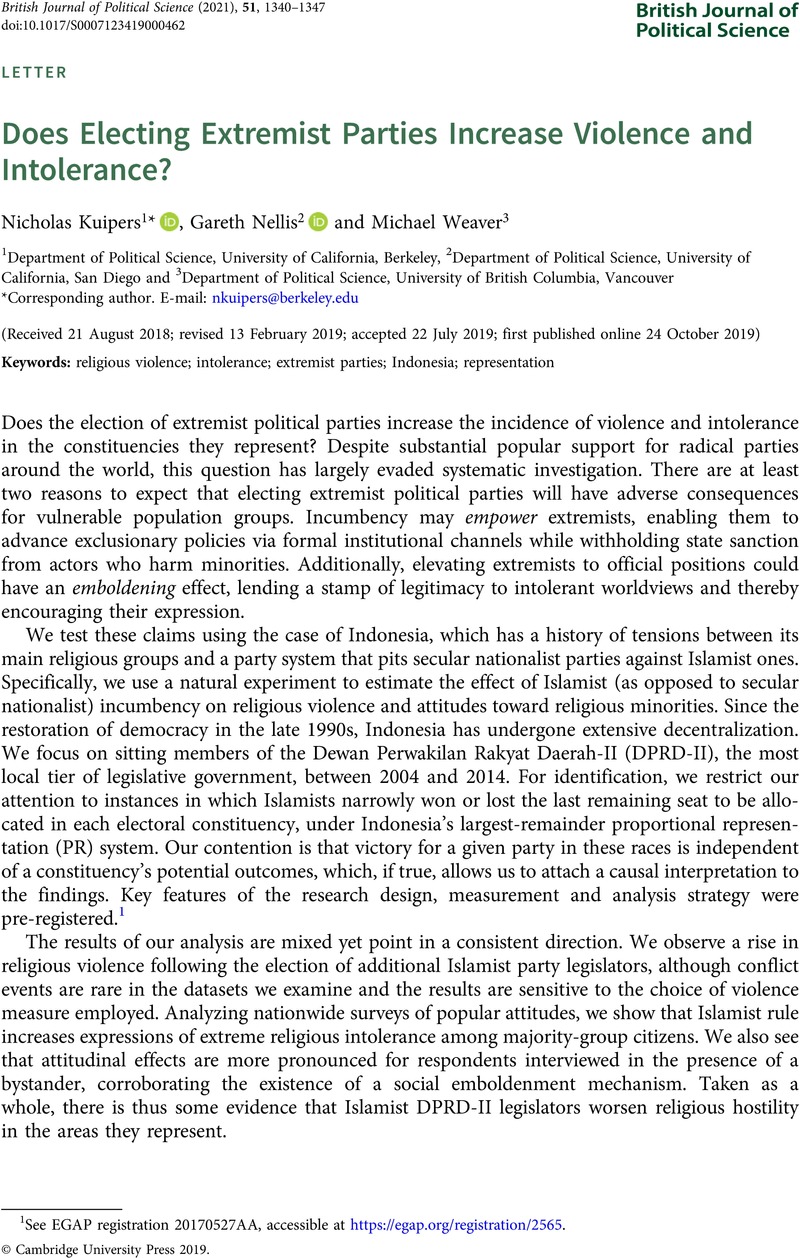Crossref Citations
This article has been cited by the following publications. This list is generated based on data provided by Crossref.
Kuipers, Nicholas
Nellis, Gareth
and
Weaver, Michael
2021.
Does Electing Extremist Parties Increase Violence and Intolerance?.
British Journal of Political Science,
Vol. 51,
Issue. 3,
p.
1340.
Ikhrom, Ikhrom
Abdullah, Irwan
Kafipour, Reza
Mubaraq, Zulfi
and
Sutiyono, Agus
2023.
Intolerance in Islamic textbooks: The quest for an Islamic teaching model for Indonesian schools.
Cogent Education,
Vol. 10,
Issue. 2,
Nellis, Gareth
2023.
Election cycles and global religious intolerance.
Proceedings of the National Academy of Sciences,
Vol. 120,
Issue. 1,



